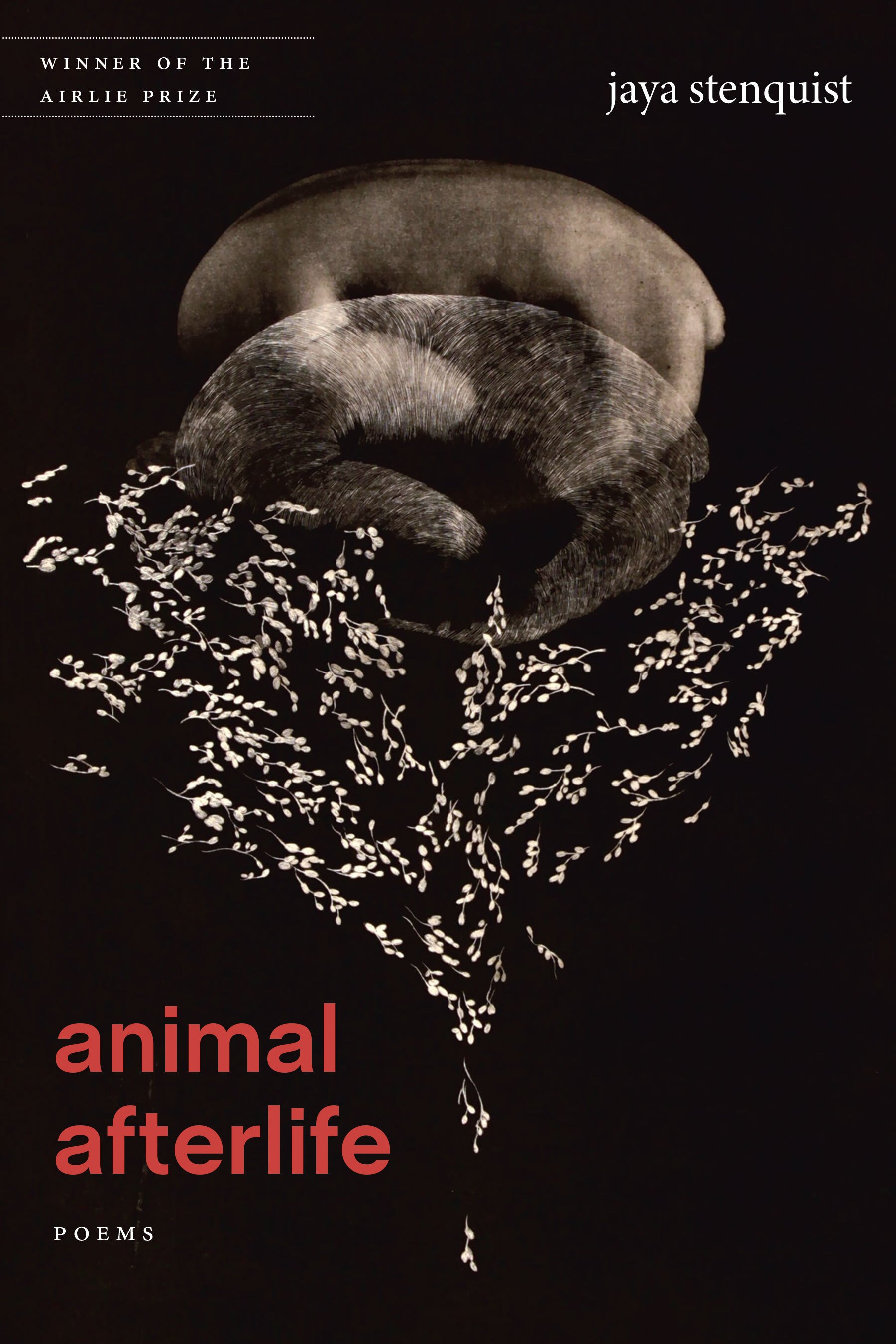Jaya Stenquist
Animal Afterlife
The voices of near-extinct animals create troubled echoes in Jaya Stenquist’s debut collection, Animal Afterlife. In fragmented reincarnations, these poems reach for the limits of humanity, the boundaries of species, and the laws of embodiment. Here, sensations become the mechanism for insight. With lithe lyric power, Stenquist builds a world of impossibilities, a language for the binturong, the eyeless spider, the siren of Canosa, and wild ponies of England; communications and intermingling with the human that can never be preserved, only imagined. As the Earth continues to change during its Sixth Great Extinction, Animal Afterlife creates an archive of spellbinding ghosts.
Cover design: Nathan Putens
ISBN: 978-1-950404-09-4
Paperback: $18
Publication date: September 1, 2022
Jaya Stenquist is a writer from Minneapolis, Minnesota. Her work has appeared in The Rumpus, Mid-American, Black Warrior Review, and West Branch Wired. She is a PhD student at the University of Texas-Austin.
Praise for Animal Afterlife
“‘Without eyes / we are the only ones who really know beauty,’ says the wolf spider in Jaya Stenquist’s inspired new collection, Animal Afterlife. Here are poems littered with the wisdom of all god’s creatures, both animal and mythic, the ones born in their mothers’ mouths, and the human ones driven to search for what can never be lost. ‘O Great Remover of Innocence / have you ever been more / than silence?’ In Animal Afterlife, life’s hunger for experience is ultimately transformed into wonder. A fascinating read.”
—Quan Barry, author of When I’m Gone, Look for Me in the East
“From the northern hairy nosed wombat to the Cook Inlet beluga, the bestiary of Animal Afterlife presents a chorus of animal voices at the cusp of extinction. Bright with curiosity and imagination, Stenquist’s persona poems and essayistic lyrics dart and flitter among the terrors and degradations of contemporary life yet alight again and again on beauty, pleasure, and vitality. ‘What strange joy I’ve known / being made animal on random days,’ Stenquist writes, in lines that aptly describe the strange-making experience of these poems. Animal Afterlife’s seductively unsettling music and embodied ways of knowing invite us into a poetic ecosystem ‘apart from the comprehensible world,’ and return us to that human world and its insidious logics no longer quite ourselves.”
—Chad Bennett, author of Your New Feeling is the Artifact of a Bygone Era
“Animal Afterlife is a work of the highest insight. It should be read and taught alongside Susan Griffin’s Woman and Nature, W.S. Merwin’s Migration, The Book of Job, The Heart Sutra. It should be handed out in NICU units, placed next to your dog’s ashes, read each morning as you wake. Where is the line between man and beast? Us and the extinct? To read Jaya Stenquist’s radiant debut is to finally know: there is no line. Each poem transfigured my last ideas about the boundaries of this life, the self, myself. Through Stenquist, the whole earth warns: it is only inside each other, we resurrect.”
—Rebecca Gayle Howell, author of American Purgatory
Excerpts from Animal Afterlife
pe'epe'emaka'ole
(no-eyed big-eyed wolf spider)
for so long I carried you in my mouth / the world
felt warm for you thick of life close to fire
I felt every breathing thing like a kind
of touching / inside my body changed
I will hold you for a year
I feel the turn / without eyes
we are the only ones who really know beauty
it’s the fit of your teeth notched
in the hairs on my back / lock / I know this pressure
my fangs pressing into a body / that moment of puncture & break
each of your small bodies an atonement may you never know violence
once someone asked what I thought about the word
mother / holding her brown hands on the couch / tracing the thought of love
over and over until it could be true / how we teach ourselves
pain / your bodies like pearled onions
my body like a kind of airplane
elephant in the places the Earth is made
where it breaks
aye-aye
no one knows how impossibly gentle
I am in the night my white hairs raised
soft in the slow Madagascar wind
the world is black and the night will go on
forever / I hold my ring finger high tap
tap tap / listen / love in an ant six legs pulsing
for the hunger of the colony someone else’s meal
how I miss the self-assurance of friendship knowing
someone’s thoughts like you dreamt them
do you know what it is to be hated?
I am love / in the night up a tree
I’m blind but my eyes are wide it’s easy
to fill a bed even repeatedly even hated
maybe especially / I hold the world in tree
I carve it of ants there’s my love
to draw out / to reach inside


